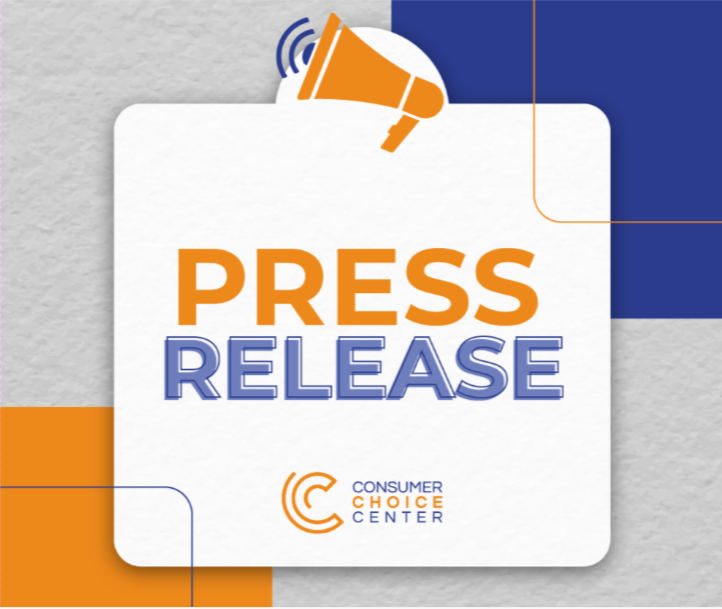Dear Member of Congress,
As Congress considers surface transportation reauthorization, its top priority should be restoring the longstanding users-pay/users-benefit principle for highway funding. Further increasing the reliance of the Highway Trust Fund on revenue streams untethered from use, as well as general fund bailouts, would not only fail to address the core fiscal challenges of the present, it would threaten the future health of America’s highways.
Congress should closely examine lessons learned in the numerous ongoing state road usage charge pilot programs and build any future federal trials upon those findings, including ensuring that all forms of surface transportation are covered, including heavy trucks and passenger vehicles. A federal road usage charge trial should be nationwide in scope and done in cooperation with the states, building on best practices developed across the states, and should focus on replacing fuel taxes.
When Congress passed the Federal-Aid Highway Act of 1956, which created the modern Interstate Highway System, this was coupled with the Highway Revenue Act. The Revenue Act established the Highway Trust Fund, which authorized the Treasury to collect taxes on producers and importers of fuel, who then pass most of that tax burden on to road users.
Set at a per-gallon rate, the rationale for the taxes was to link highway use with highway infrastructure investment. Prior to the creation of the Highway Trust Fund, federal-aid highways were funded out of general revenues and drivers did not bear the costs of the infrastructure they used. In addition, all federal taxpayers—even those who did not drive—were thereby forced to pay for highways.
Adhering to the users-pay/users-benefit principle is superior to general revenue funding for a number of reasons:
- Fairness: Highway users benefit from the improvements their user fees generate.
- Proportionality: Users who drive more pay more.
- Self-limiting: The imposition of a fee under which proceeds may only be used for the specified purpose imposes a de-facto limit on how high that fee can be.
- Funding Predictability: Highway use and therefore highway user revenues do not fluctuate wildly in the short-run.
- Signaling Investment: Because revenue roughly tracks use, the mechanism provides policy makers with an important signal as to how much infrastructure investment is needed to maintain a desired level of efficiency.
Congress should also make clear what the users-pay/users-benefit principle is not intended to do:
- Road usage charges should replace fuel taxes, not supplement them.
- Road use charges are not a tax, but a user fee.
- Any users-pay/users-benefit program is not intended to force behavioral change, nor should the program have any environmental or social goals beyond the adequate funding of the Trust Fund.
- User fees are not a surveillance program and best practices being developed at the state level ensure that users’ data are protected from misuse.
- User fees are not intended to force rural drivers to pay more, any more than fuel taxes punish rural drivers who tend to drive longer distances in less fuel-efficient vehicles.
For these reasons, we urge you to prioritize protecting and strengthening the users-pay principle in the 2021 surface transportation reauthorization and support the development of a nationwide, interoperable road usage charge trial.
Sincerely,
Iain Murray
Vice President for Strategy
Competitive Enterprise Institute
The Honorable Andrew H. Card, Jr.
Former White House Chief of Staff, United States Secretary of Transportation
Douglas Holtz-Eakin
President
American Action Forum*
*Affiliation for identification purposes only
Hon. Samuel K. Skinner
Former United States Secretary of Transportation
James L. Martin
Founder/Chairman
60 Plus Association
Saulius “Saul” Anuzis
President
60 Plus Association
Steve Pociask
President / CEO
American Consumer Institute
Ike Brannon
President
Capital Policy Analytics
Andrew F. Quinlan
President
Center for Freedom and Prosperity
Matthew Kandrach
President
Consumer Action for a Strong Economy
Yaël Ossowski
Deputy Director
Consumer Choice Center
Ian Adams
Executive Director
International Center for Law & Economics
Brandon Arnold
Executive Vice President
National Taxpayers Union
Adrian Moore, Ph.D.
Vice President of Policy
Reason Foundation*
Former Commissioner, National Surface Transportation Infrastructure Financing Commission
*Affiliation for identification purposes.
David Williams
President
Taxpayers Protection Alliance
Roslyn Layton, PhD
Aalborg University
Senior Contributor, Forbes
Tom Giovanetti
President
Institute for Policy Innovation



